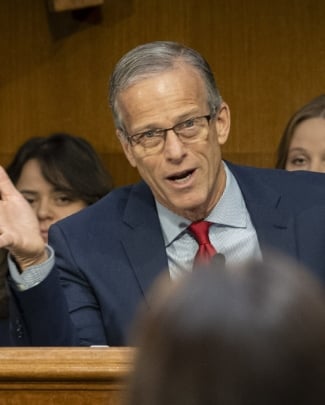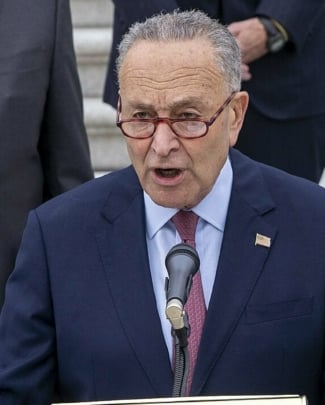CHICAGO RELEASES INMATES, HIDES NAMES FROM POLICE
CORONAVIRUS AND THE PROVIDENCE OF GOD
NEW WAVE OF LOCUSTS THREATEN MILLIONS IN AFRICA, MIDDLE EAST
U.S. CORONAVIRUS PROJECTIONS MISS MARK
THE POTENTIAL OF HERD IMMUNITY TO COMBAT COVID-19
CHICAGO RELEASES INMATES, HIDES NAMES FROM POLICE
Cook County, home of Chicago, released hundreds of inmates from its jails during the coronavirus crisis. But good luck trying to find out who is back on the streets or what crimes they are accused of committing.
The prosecutors and public defenders, who handle the cases in special COVID-19 court hearings, keep a close hold on the information and refuse to share it with the public or other law enforcement agencies.
The Cook County Sheriff’s Office that runs the jail says it doesn’t know who was released because of the coronavirus.
Even the Chicago Police Department says it’s in the dark about inmates who have been released.
“The greatest fear people have is the fear of the unknown,” Kevin Graham, president of the Chicago Fraternal Order of Police, told The Washington Times. “We don’t know what is occurring, we don’t know why people are being released, we don’t know their offenses, and we don’t know if these people pose a danger to society.”
Like Cook, cities and counties across the country are opening jailhouse gates to release inmates awaiting trial for crimes. The goal is to reduce the population behind bars because of fears that a coronavirus would spread quickly in the confined spaces of jail, endangering inmates and staff who have high risk factors that make COVID-19 a killer.
Prison reform advocates and some public health officials support the releases, but public safety advocates warn that authorities do not give enough scrutiny to those who are set free.
HIV-positive rapist released
In Cincinnati, Dexter Ford might seem like an obvious candidate for release.
At age 64 and HIV-positive, he checks some of the key boxes for high-risk factors. The homeless man was arrested last month on charges of trespassing after he washed himself in the bathroom of a grocery store.
But a closer look at his criminal history reveals something darker. In 2007, he was sentenced to 10 years in prison for raping an epileptic University of Cincinnati student who was walking along a road.
Camille Cooper, vice president of the Rape, Abuse & Incest National Network, which advocates for sexual assault victims, said Ford’s history makes his release deeply troubling.
“Being HIV-positive, homeless and having a record for a sexually violent offense makes this individual extremely high-risk in terms of the danger he poses to the public,” she said.
Ford was being held on a $1,000 bond for the trespassing charge. He could have made bail if he had put up $100 as collateral. He didn’t have the money, which was why he was sitting in jail while authorities worried about the coronavirus.
Hamilton County Municipal Court Judge Janaya Trotter Bratton told The Washington Times that she released Ford because she didn’t think he should suffer for a lack of $100.
“I don’t think the purpose of bond is to punish people for being poor, and he was in jail and only in jail because he was poor. If there was an individual with the same fact pattern and means to pay $100, we wouldn’t be on this call,” she said.
Judge Bratton said she doesn’t view Ford as a danger to the community.
“He’s 64 and has not been in any trouble at all since he’s gotten out of prison,” she said. “He was picked up on the least charge you can be picked up on.”
Ms. Cooper, the victims’ advocate, said it didn’t make sense to release Ford on his own rather than sending him to a halfway house or other restrictive environment.
“Just releasing him and saying you can go be transient again is an additional risk to him,” she said. “If the judge wants to come at it from a compassionate standpoint, she could have provided social support to this individual who has multiple risk factors. It is kind of an irresponsible thing to do to a multiple offender.”. . .
Opaque information
“No process is ever going to be perfect, especially when you are talking about the government,” Ms. Moll said. “There is always going to be a chance for error, and even some of the best plans are going to be right 70 to 80% of the time.”
Ms. Moll said the key is for jurisdictions to be flexible enough to respond quickly when it does make mistakes. Holding detention reviews on a case-by-case basis and requiring offenders to check in with parole officers help mitigate errors, she added.
At the federal level, Attorney General William Barr expanded early release of inmates to try to cut prison populations. U.S. Immigration and Customs Enforcement, which oversees illegal immigrants being detained as they await deportation hearings or final ouster, said it is also considering who might be released.
Judges are stepping in, too, by ordering releases of criminal inmates and immigrant detainees in response to lawsuits from people arguing that they are in high-risk categories.
The Times sought lists of releases from several big cities.
Officials in Tampa, Florida, Denver and Cincinnati were among those that shared their lists.
Others were more opaque.
In Pittsburgh, a spokeswoman said Allegheny County had no list because officials were “focused on moving through this process, right now, not gathering stats.”
he sheriff’s office in Alameda County, California, referred all requests to the county court and public defender’s office, neither of which responded to repeated inquiries.
Beth Huebner, a recidivism researcher at the University of Missouri-St. Louis said privacy issues may be involved in revealing the releases of people who have not been convicted of the charges that got them detained.
“We need to make sure we protect the names of these individuals and their identities because they could be opened up to further stigma,” she said. “This information could be used in nefarious ways.”
But Bill Johnson, executive director of the National Association of Police Organizations, said the information should not be shielded from the public.
“It is really stunning, and I don’t use that word lightly,” he said. “For a public defender to say we don’t want to release information on who is coming into and out of the system is a betrayal of the legitimate need of the public’s right to know. I think it is very shortsighted and kind of ironic that an office titled public defender can be so antagonistic to the safeguards the public requires.”
In Cook County, the public defender’s office manages the release process in conjunction with State’s Attorney Kim Foxx and Sheriff Tom Dart.
Defendants are released after hearings, but the hearings aren’t on the public docket and aren’t being held in the two courtrooms the county has kept open during the COVID-19 crisis. . .
(Excerpt from The Washington Times. Article by Jeff Mordock.)
Partner with Us
Intercessors for America is the trusted resource for millions of people across the United States committed to praying for our nation. If you have benefited from IFA's resources and community, please consider joining us as a monthly support partner. As a 501(c)3 organization, it's through your support that all this possible.


We use cookies to ensure that we give you the best experience on our website. If you continue to use this site we will assume that you are happy with it. Privacy Policy




Comments
Father, I pray for this situation of releasing prisoners who have been arrested, some for serious crimes. Protect the public from them and turn their hearts to you.
Father,
We pray for wisdom for all our nation’s judges regarding who is released. We pray for transparency, public protection, and resources and support for those released to live lawfully abiding lives. We pray for their salvation and for positive integration into society as a benefit to others and not a burden. Help them to make the most of this opportunity for a fresh start.